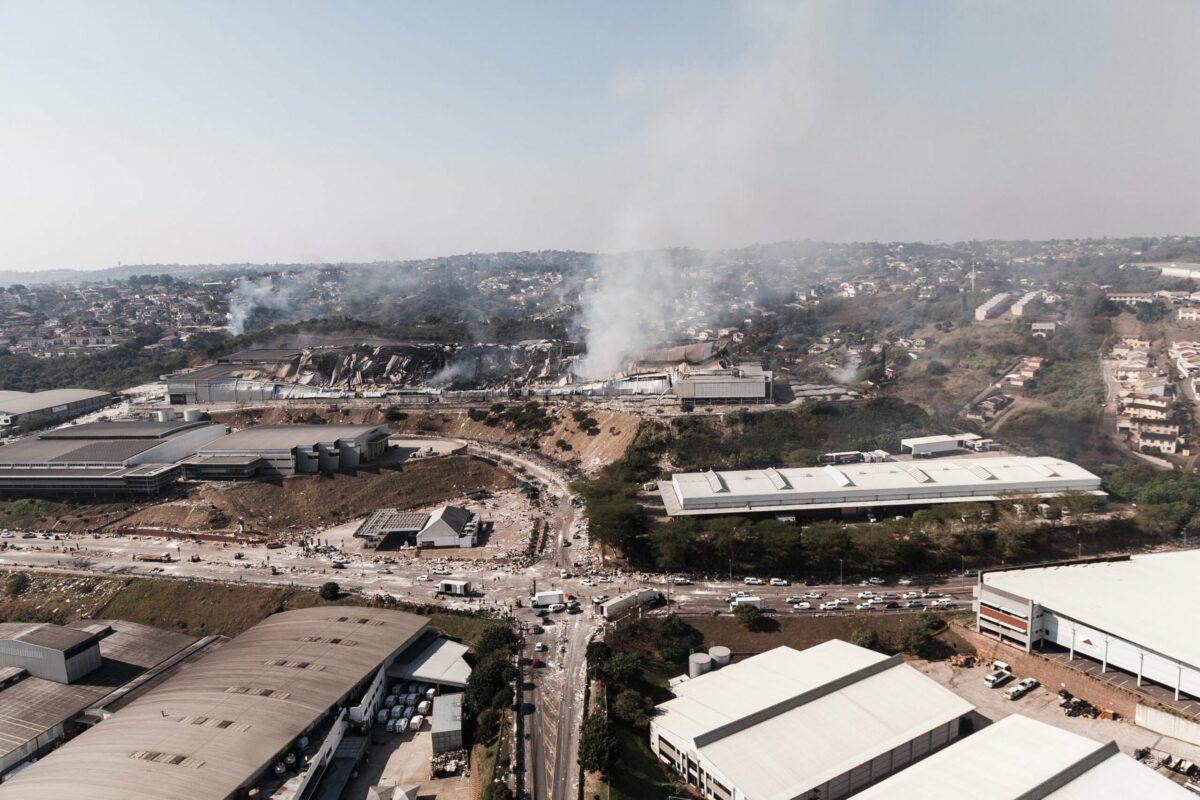The politicised conflict in the country has resulted in much trauma and bereavement. The July unrest and the looting of businesses has severely affected the economy of the state, especially in KwaZulu-Natal and Gauteng. The unrest has manifested through violent, aggressive and criminal behaviour, including looting and arson.
These events draw our attention to social, community and political psychology, and the subsequent effect on our collective physical and emotional well-being. We might ask ourselves: have we maintained awareness or have we dissociated in response to the trauma and (traumatic) bereavement? Is such behaviour slowly developing into a norm? Have we been so conditioned by apartheid and the current government to communicate through violent behaviour when there is a conflict? Are we raising an angry, anxious and traumatised society?
Trauma
Business owners and employees have been traumatised emotionally and physically, which has affected their mental health and well-being. We wonder about the likelihood of those business owners with uninsured businesses experiencing depressive symptoms and anxiety and suicidal ideation. Business loans and staff salaries are due, while workers and breadwinners lose their jobs. The unemployment rate rose to 44% in August and is likely to contribute to high levels of stress and familial conflict.
At one point many cities in the country were being protected by the military, which made it look and feel like a warzone. This can trigger feelings of anger, flight or fight responses and memories of apartheid (for instance, wanting to run or defend yourself when you see a soldier). A military presence may not always have the desired effect to calm and reassure but may trigger further feelings of trauma, fear and withdrawal. Research by Heeke et al suggests we can expect trauma and bereavement to be prevalent in conflict-affected regions.
When we highlight that this all started with the arrest of former president Jacob Zuma, we are reminded that there is much work that needs to be done politically and socially. Let’s not forget context: the unrest took place during the Covid-19 pandemic, whereby most people are already experiencing great uncertainty regarding their psycho-social well-being, the trauma of losing loved ones, general life uncertainty and bereavement of life as we once knew it.
Bereavement
With more than 85 000 South Africans succumbing to Covid-19, the unrest exacerbated existing concerns about life and death, even in the “unaffected” areas. We are grieving the loss of more than 300 people who died during the unrest and looting. We cannot ignore that, as African people, we are a collectivist continent that values community and social support. Thus, we are affected even when we are seemingly unaffected.
The pandemic has inducted us into a “new normal”, yet we continue to long for our African indigenous collective grieving processes. As Ramose reminds us, “Africans do not conceive death and life as two separate phases; instead, there is a harmonious and interdependent coexistence between the two life forces.” How do we deal with these disruptions?
Way forward
Some would argue that the unrest is a socio-political failure and highlight the inequity in the sociopolitical system. During these times let us be wary to not pathologise individuals who are not coping, but rather pathologise the socio-political system that is causing this trauma. Often a community understanding is needed to solve such socio-political issues. Community psychology plays a role in ensuring that there is peace and a sense of ubuntu among individuals in their community. There must be a collaborative interaction between the socio-political system and communities to evoke a sense of peace and stability. Moreover, quality of life can be improved through constructive social change and empowerment to prevent the recurrence of such traumatic events. This will, in turn, help us as a nation to reclaim, regain and recover our well-being.

